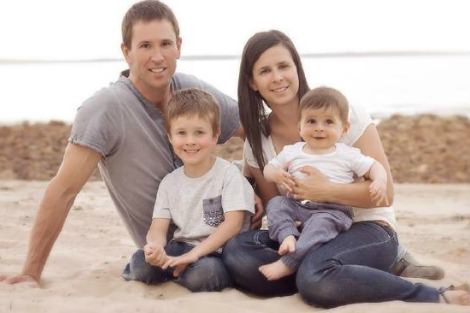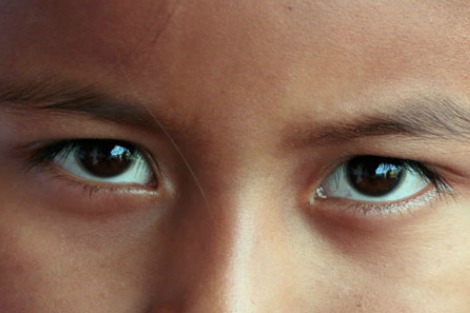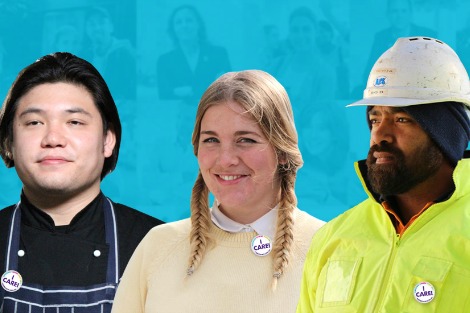Keywords: Illness
There are more than 200 results, only the first 200 are displayed here.
-

AUSTRALIA
- Andrew Hamilton
- 21 January 2016
7 Comments
In our response to the forced movement of peoples we must recognise that our national identity is not built primarily on uniformity of religion and race but on adherence to the values that are enshrined in our social institutions. We must also recognise the way in which our own prejudices and fears affect the judgments and proposals we make, and exercise a proper scepticism about making quick judgments and drawing universal conclusions from particular events such as those in Cologne.
READ MORE 
-

AUSTRALIA
- Lyn Bender
- 18 January 2016
18 Comments
In the early hours of a brand new year, two small boys had their lives extinguished by a purportedly depressed father. For me this event brought to mind two cases from a past life, when I was the manager of Melbourne Lifeline. One was a woman who disclosed that she had killed her two small children a decade earlier. In a second case, a belligerent suicidal man expressed rage towards his former partner, who was about to remarry. I asked pertinent questions. Would he harm his children? 'Yes.'
READ MORE 
-

AUSTRALIA
- Justin Glyn
- 11 January 2016
4 Comments
Health care professionals at the Royal Melbourne Children's Hospital have begun to do what could not be achieved by reports from the UN Special Rapporteur on Torture and Australia's Human Rights Commission. The doctors and staff are refusing to release children they treat back to the detention which caused their problems in the first place. By this brave act has begun the slow task of pouring daylight (always the best antiseptic) into this gaping wound in Australian society.
READ MORE 
-

AUSTRALIA
- Andrew Hamilton
- 09 December 2015
11 Comments
Although they can be inconvenient, human rights matter. It is important for nations to recognise them and for citizens to defend them. The survivors of the Second World War who had seen the gross violations of human rights under both Nazi and Communist regimes clearly saw this. These states regarded human rights as a privilege that they could give and take away as they chose. History spells out in the alphabet of gas chambers and gulags what that attitude meant for their subjects.
READ MORE 
-

AUSTRALIA
- Andrew Hamilton
- 03 December 2015
15 Comments
A cyclist since my youth, I was intensely annoyed when campaigners first tried to enforce cycle helmets. I loved the wind rushing through my hair, and believed my safety could be left to my responsibility. Others might have wondered if I overestimated my sense of responsibility. It was hardly compatible with the practice of never applying the brakes when going down hills on country roads, or with the view that traffic rules applied only to cars. Later, I came to see that individual freedom must be considered in its context of human relationships.
READ MORE 
-

RELIGION
- Frank Brennan
- 03 December 2015
The consideration of medico-legal problems in the public square of a pluralistic democratic society keeping pace with profound technological change is often marked by simplistic assertions, precluding considerations of comprehensive world views, whether religious or philosophical. It is now commonplace for doctors to be told to leave their consciences at the door, as their patients are consumers and they are suppliers and of course the market decides. Debates about law and policy are often resolved with simplistic assertions about individual rights and autonomy, with little consideration for the public interest, the common good, and the doctor-patient relationship. Even conscience is said to be a matter for contracting out. This evening I ask whether there are more compelling ways to resolve medico-legal dilemmas, while conceding a limited role for law in determining the range of acceptable answers.
READ MORE
-

AUSTRALIA
- Andrew Hamilton
- 26 November 2015
6 Comments
Questions remain regarding the recent death and disturbance on Christmas Island, posed by the responses by New Zealand and Australian government ministers to the unrest. New Zealand Internal Affairs Minister Peter Dunne compared the Christmas Island regime to Guantanamo Bay. Australian Minister for Immigration Peter Dutton emphasised the $10 million damage to property. Both responses were partial. At a deeper level the riot was the predictable outcome of a brutal government policy.
READ MORE 
-

AUSTRALIA
- Moira Byrne
- 14 October 2015
3 Comments
Mental health disorders among caregivers occur at a rate of up to two times that of the general population, and relationship breakdown for parents of children with special needs is reported to be around 80 per cent. Since becoming a parent of someone with a disability and changing careers, I've been fortunate to have employers who have permitted part-time work, which has been a crucial aspect of my wellbeing. This has not always been the case, nor is it the case for all caregivers all the time.
READ MORE 